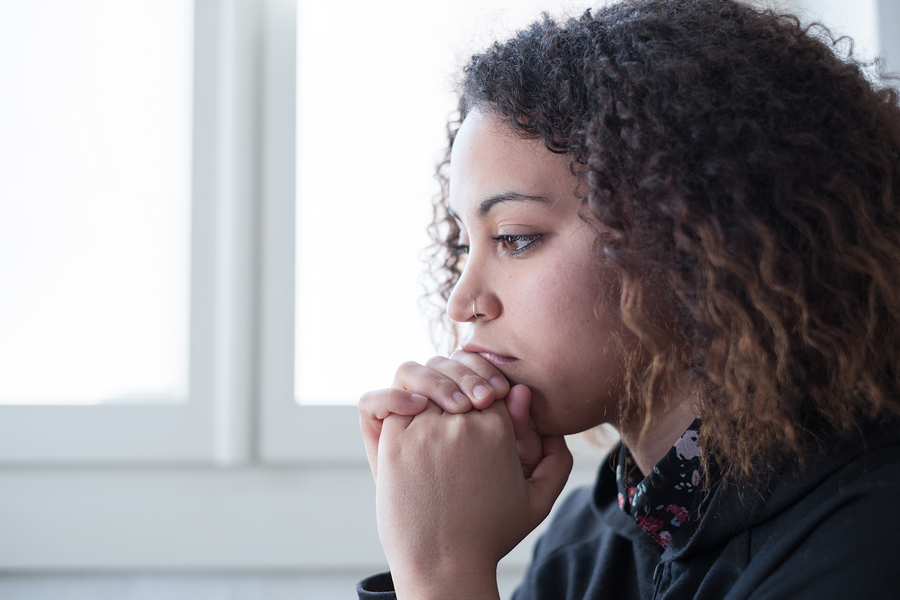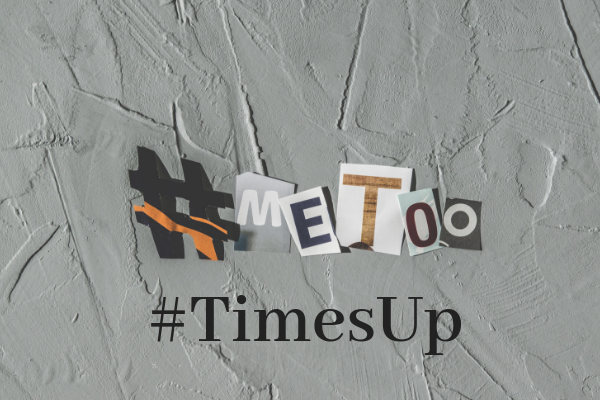What does #TimesUp mean for you?
By Arathi Devandran
During a conversation one evening, a friend and I were discussing the concept of “otherness” – the feeling of standing on the fringe of a social setting and wondering how you got there, and why, and how that made us feel as individuals. He asked me when was the last time I had experienced this so starkly, and how it had made me feel.
A particular incident from my undergraduate days came to mind. I was the only female, non-white, international student in that class. I remember having my fellow white, male classmates mansplaining concepts to me, and furiously out-talking each other to answer questions that my professor had posed
to the class.
At that moment, I distinctly remember feeling like I was standing on the outside, looking in at a scene that had no place for me. I was the hesitant female – the other who was struggling to find a way in and to get a seat at the table. But there was just no space. It is an intimidating place to be, to be faced with the unspoken pressures of maleness and whiteness. To feel like you have to perform ten times better than your male counterpart just because.

To have to do this not once, nor twice, but all day, every day. I remember wondering what it would be like to just feel like I belong without even trying. To have the world set up just so that all things work in your favour. I did not get answers that day. I don’t have any answers today either, though the questions continue to persist. What needs to be done to create a safe space for the female other?
It has always been difficult for women to speak up about what they have experienced, especially at the workplace. One early, high-profile case of sexual harassment that was brought to court, and swiftly dismissed thereafter, was that of Anita Hill (1991). She went before a panel – all-male – to testify that a then-Supreme Court nominee had sexually harassed her. It was almost as if she was deemed guilty from the start. She was chastised for continuing to engage this man and even asked if
she was a “scorned woman”. 1[1]
There was shame and there was judgement. This is why it is difficult for a woman to come forward and share her experiences. These confessions colour her life, and mark her. She is the victim seeking recourse, but she becomes the defiled, sometimes even the perpetrator. So the woman suffers in silence. She swallows her words. She waits it out. Sometimes, she believes it was indeed her fault.
But when more women speak out about what they have experienced, other women are galvanised to come forward from the shadows. A domino effect is triggered. There is momentum for change.

Highly-revered members from different segments of society have been named and shamed for their less-than-appropriate behaviour. They have faced tremendous legal and personal costs. Each case adds to the narrative that while society has finally opened its eyes, more still has to be done to strengthen existing support systems for the victims. Discourse has to continue because it keeps the spotlight shining on issues that constantly get swept under the radar – what is consent?; what are the limits of interactions and boundaries between two consenting individuals?; what help is available if you are at the receiving end of unacceptable behaviour?; for that matter, what is unacceptable behaviour?

To be honest, there is nothing too new about the #TimesUp movement – it is the story about women who are tired of being talked down to, harassed, questioned and made to feel like they are the perpetrators even when they are the victims. It is a story that was once whispered from woman to woman. Now, it is being roared.
It is encouraging, especially for a young woman like me – a young woman who is embarking on her career, as a young, non-white female in a world that is still ruled by the Western male. It is encouraging because I can see support networks and communities growing around the world to help women – some still struggling in silence. It is encouraging because it reminds me of the power of a collective voice. It is encouraging because now I know that if I were ever to have something to say about something so unpleasant, my voice will not be drowned out by naysayers. And even if it is, there are people out there who will be willing to listen. And echo my cries.
[1] “Women are Speaking Up about Harassment and Abuse, But Why Now?”, 27 Oct 2017, NPR.
(Visited 508 times, 2 visits today)



There are no comments
Add yours